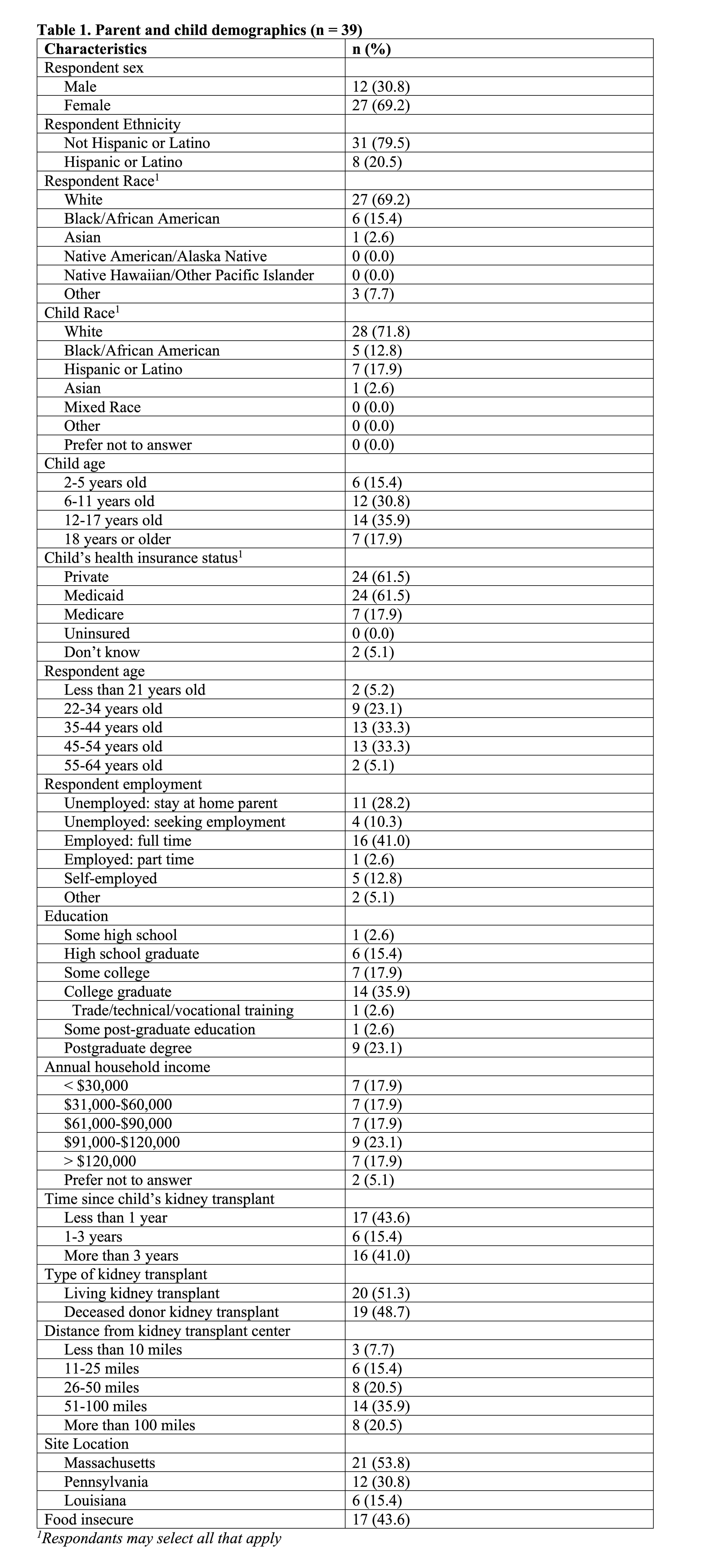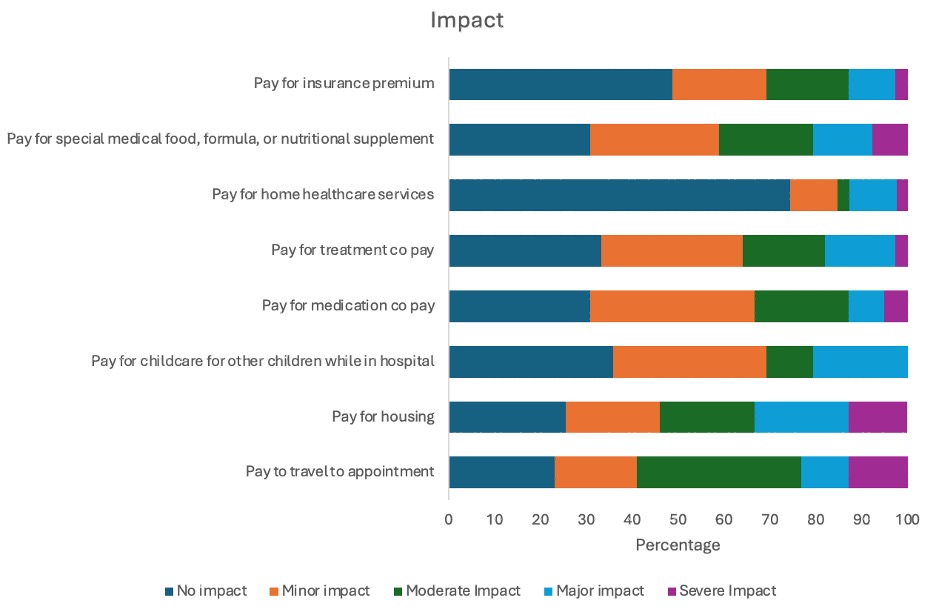Transplant coordinator/Nurse Practitioner
Kidney Transplant
Boston Childrens Hospital
Financial burden of kidney transplantation
Mallory Mandel1, Camille Nicholas Frank1, Elizabeth Benoit1, Gabrielle D’Ambrosi2, Sandra Amaral3, Isa Ashoor1.
1Division of Nephrology , Boston Children's Hospital , Boston, MA, United States; 2Biostatistics and Research Design Center, Boston Children’s Hospital, Boston, MA, United States; 3Division of Nephrology and the Kidney Transplant and Dialysis Program, Children's Hospital of Philadelphia , Philadelphia , PA, United States
Little is known about the financial burden of kidney transplantation experienced by families of children with end-stage kidney disease (ESKD). Federal, state, and private insurance plans vary widely in their coverage limits and eligibility requirements. Many children receive their kidney transplant from a primary caregiver which may further compound financial insecurity due to donor expenses. We aim to describe the financial burden incurred by families undergoing kidney transplantation both as potential living donors and as caregivers of children with ESKD.
This mixed-methods 2-phase study targeting families whose child underwent kidney transplantation took place at 3 tertiary pediatric hospitals in the states of Massachusetts, Pennsylvania, and Louisiana. Phase 1 included a financial burden assessment survey for recipient families. Questions were developed with expert opinion and stakeholder input. Surveys include 14 quantitative and 5 qualitative questions and a food insecurity screen. Phase 2 involved focus groups of a sample of families from phase I. Descriptive statistics and focus group qualitative thematic analysis were utilized. Bivariate associations between categorical variables and a self-perceived financial burden outcome were analyzed (respondents were categorized as financially burdened if selected “just getting along,” “poor,” or “very poor” when describing their financial situation).
45 surveys of parent caregivers were completed, including 6 parents who also served as living donors (Table 1). Fifty-nine percent described their financial situation as financially burdened and 44% reported food insecurity. Payment for housing during child’s admissions and travel to appointments had a moderate to severe impact on family’s finances in the majority of responses (54% and 59% respectively). Out of pocket expenses were highest for gas/transportation expenses, and insurance monthly premiums with 47% spending > $200 per month. Sixty-four percent missed days of work, 41% quit jobs, 31% were unable to accept higher-paying jobs, and 26% suspended personal educational studies. Other financial avenues accessed included credit card debt (31%), savings account (26%), charity (26%), selling assets (8%), and working overtime or obtaining another job (13%). An association was found between self-perception of financially burdened and annual household income (p<0.01), living donor type (p=0.02) and food insecurity (p < 0.01), with no significant association found with education level, respondent race, or distance from kidney transplant center. Key themes from focus group analysis included life-altering, job loss, time-consuming, depleted resources, uncertainty, and isolation.
Families from a diverse geographical and socioeconomic background experience significant financial burden after kidney transplantation through loss of income opportunities and high out of pocket expenses, that leads to resource depletion, food insecurity, and familial sacrifices.


Lectures by JoAnn M Morey
| When | Session | Talk Title | Room |
|---|---|---|---|
|
Sat-20 10:00 - 11:00 |
Infections and vaccines | Incidence of EBV DNAemia among pediatric kidney transplant recipients in the COVID era | MOA 5 |
|
Thu-18 17:00 - 18:00 |
Kidney Posters - from P1.1 to P1.32 | Long term outcomes of sirolimus based immunosuppression among haplotyped-matched pediatric living donor kidney transplant recipients | MOA 10 (Exhibit Area) |
|
Thu-18 17:00 - 18:00 |
Kidney Posters - from P1.1 to P1.32 | Financial burden of kidney transplantation | MOA 10 (Exhibit Area) |
